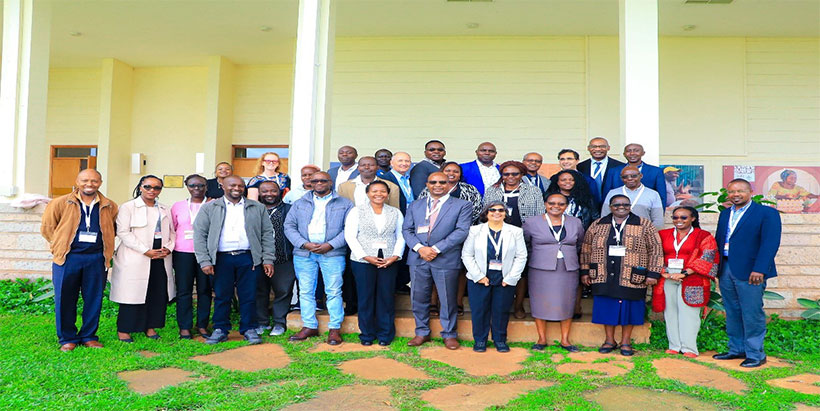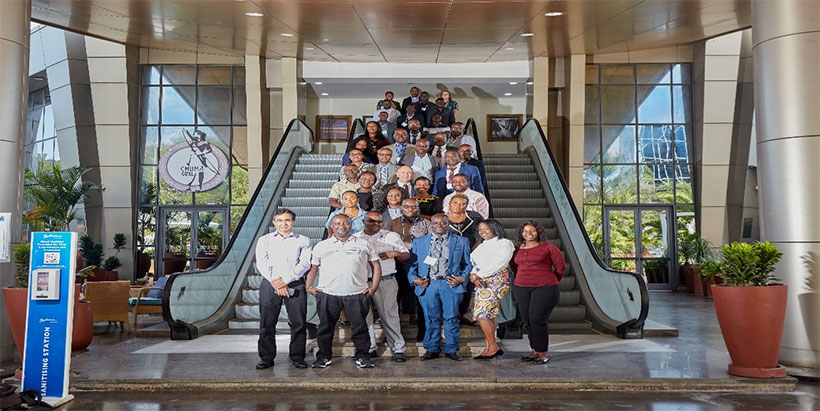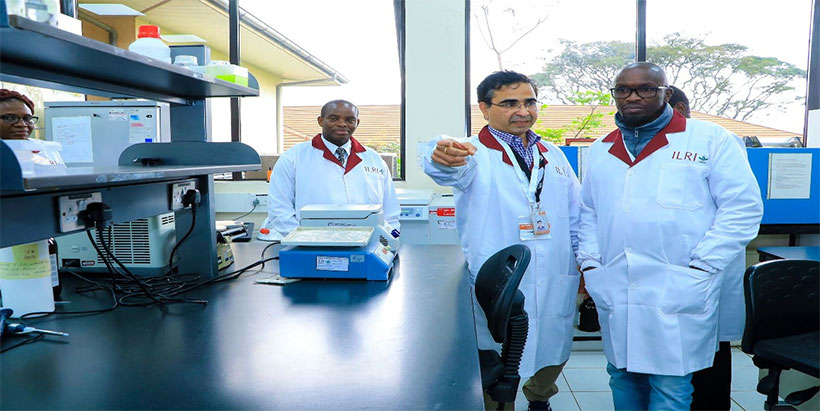30 May 2024
In a concerted effort to advance agricultural biotechnology in Africa, IITA, the University of California-Davis, and the African Union Development Agency-NEPAD (AUDA-NEPAD) recently organized two pivotal workshops on biotechnology in Kenya from 8 to 10 May and Zambia from 13 to 15 May.
 Workshop participants in Nairobi, Kenya.
Workshop participants in Nairobi, Kenya.
IITA Director for Eastern Africa Hub and Biotechnology Leader Leena Tripathi stated, “Biotechnology holds the key to sustainable agriculture in Africa, offering innovative solutions to enhance crop yields, improve resilience to climate change, and reduce the environmental impact of farming practices.”
In his remarks, the Director of the Seed Biotechnology Center and Scientific Director at the African Orphan Crops Consortium at the University of California-Davis, Dr Allen Van Deynze, explained: “These workshops were designed to equip key stakeholders, including officials from national biosafety authorities, agricultural researchers, and university academics, with the latest knowledge and advancements in agricultural biotechnology, particularly genome editing.”
The workshop in Kenya, hosted at the International Livestock Research Institute (ILRI) in Nairobi, brought together a diverse group of participants to explore global trends and developments in agribiotech. Key sessions focused on imparting insights into how genome editing technologies can enhance crop resilience, nutritional value, and environmental sustainability. The discussions also navigated the complex regulatory frameworks that govern biotechnological innovations, highlighting the economic and social implications of biotechnological advancements and strategies for promoting sustainable agriculture and food security.
 Participants of the workshop in Lusaka, Zambia.
Participants of the workshop in Lusaka, Zambia.
Tripathi highlighted the dependency of African institutions on external funding and the insufficient investment in research and development by African governments as bottlenecks to genome editing’s success. She reiterated the need for these governments to keep their commitment to allocating at least 1% of their GDP to research efforts to make genome editing a success.
Building on the momentum from Kenya, the Zambia workshop convened officials from the National Biosafety Authority, Zambia Agriculture Research Institute (ZARI), and Zambian universities. This sequel workshop aligned technical expertise and regulatory requirements with Zambia’s national agricultural priorities. Discussions were centered on developing robust regulations that support innovation while ensuring safety and environmental protection and investing in education and training programs to equip stakeholders with the necessary skills and knowledge. A legume breeder and senior lecturer at the University of Zambia, Dr Kelvin Kamfwa, highlighted the importance of targeted post-graduate training courses for scientists and technicians in genome editing as an essential priority for building a robust genome editing research system in Zambia.
A significant theme that emerged during the Zambian workshop was the detrimental effect of misinformation and negative public perceptions on the adoption of modern biotechnology. Despite the clear benefits of genome editing for increasing agricultural productivity and resilience to climate change, misinformation continues to create public resistance and regulatory hesitance. Consequently, there is a pressing need for transparent communication and education initiatives that demystify biotechnology and highlight its potential to address food security challenges.
 Workshop delegates during the laboratory facility tour at the BecA-ILRI hub in Nairobi.
Workshop delegates during the laboratory facility tour at the BecA-ILRI hub in Nairobi.
A crucial aspect of these workshops was exposing participants to the necessary infrastructure for biotechnology through laboratory facility tours—conducted physically in Kenya and virtually in Zambia— and discussions on capacity mobilization. These tours provided an in-depth look at the state-of-the-art equipment and facilities required for advanced biotechnological research, while the discussions focused on strategies for building and maintaining this infrastructure across African institutions.
Reflecting on the insights gained from the workshops in Kenya and Zambia, it is clear that the journey toward widespread adoption of modern biotechnology is complex but essential. As climate change continues to challenge agricultural productivity across Africa, the potential of modern biotechnology to transform our agricultural landscape has never been more critical. By fostering collaboration, enhancing regulatory frameworks, and investing in education, Africa can harness the power of biotechnology to build a sustainable and food-secure future.